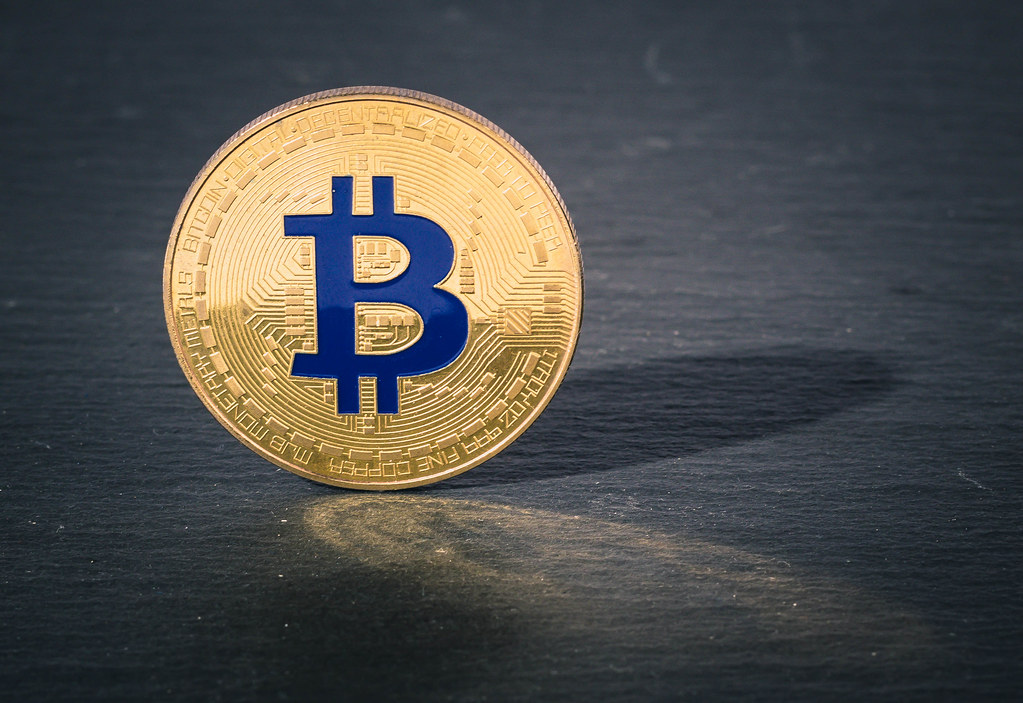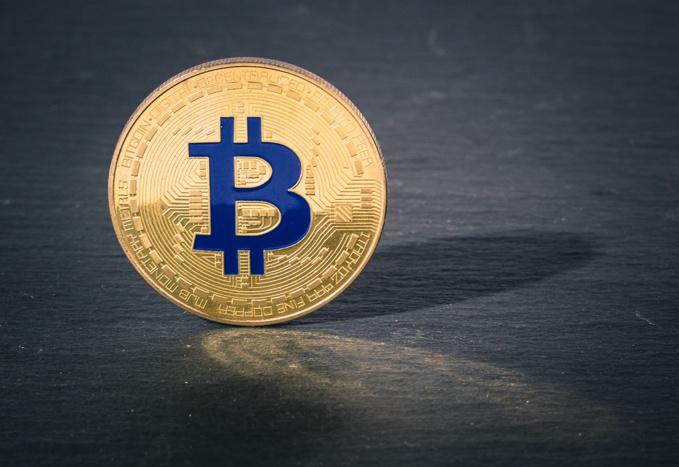In May, private investors and blockchain geeks watched sudden appreciation of the already somewhat forgotten digital asset, Bitcoin, which was a hot investment idea in 2017-2018. Since the beginning of the month, its exchange rate against the dollar has soared from $ 5,300 to almost $ 8,400. And although on May 16 the rate dropped, the cryptocurrency still costs more than $ 7,000, staying at the maximum level since July last year.
What is the reason for such a fast reanimation of the digital asset? The reason can lie in the massive withdrawal of capital from China against the background of deteriorating foreign trade conditions. Washington and Beijing suddenly broke off trade negotiations for the global market. On May 10, the US authorities raised tariffs on imports from China in the amount of $ 200 billion, and in the future, new duties by about another $ 300 billion will be extended to the remaining imports.
This step provoked fall of the yuan to the dollar: the rate of the Chinese currency approached the level of 7 yuan per dollar. At the same time, Bitcoin strengthened against the dollar.
Against this background, Chinese banks have tightened the rules for issuing cash dollars to residents. According to rumors, the People's Bank of China makes customers explain why they need the US currency when withdrawing amounts of more than $ 3,000, although this procedure previously applied only to amounts over $ 5,000. According to media reports, Chinese banks are blacklisting those customers who often receive dollars in cash, and do not allow them to withdraw even a couple of hundred dollars.
All this suggests that Chinese physical persons staged a rally in Bitcoin, wishing to withdraw capital from the country because of fears of a further weakening of the yuan.
The growth of cryptocurrency could accelerate closing of short positions by speculators. In late April - early May, short positions on Bitcoin futures on the Chicago Mercantile Exchange (CME) remained at historic highs. Speculators "shorted" 1039 futures, or 5195 BTC (~ $ 38 million). Probably, the sudden rally of the last few days forced part of hedge funds to buy off their shorts, which spurred the positive dynamics of Bitcoin.
However, these growth factors are short-term. After all, Chinese investors who have bought Bitcoin will sooner or later sell it for dollars.
In the long run, Bitcoin will remain the same very curious social and economic experiment. There can be several growth drivers of this cryptocurrency.
Firstly, states around the world are refusing cash in the framework of increasing control over society, growing tax collection, etc. In this case, cryptocurrencies will be the most convenient and already tested substitute for anonymous cash. As the discussion continues, payments around the world are slowly but surely turning into non-cash form, strengthening the position of cash fighters.
Second is the idea of modern monetary theory (MMT), which is widely discussed in the US, according to which the state budget deficit does not matter, because the government can print as much money as it needs.
This theory is conquering the minds of both Republicans and democrats. Conservatives predict that MMT will end in hyperinflation, similar to that observed in the Weimar Republic.
Inflation hasn’t accelerated in Europe and Japan, where this theory has been in use for many years (in Japan - since the 1990s, in Europe - all the 2010s). However, some are still afraid of possible results of such a radical experiment. The discussion will gain momentum during the US presidential campaign in 2020.
Finally, the third factor is institutional and corporate investors entering the market. There are already some significant examples - for example, investments from university funds (Yale University, University of Michigan), launch of an institutional platform by the Fidelity broker (rumored to be very soon), official plans to start trading crypto assets in several European exchanges, Facebook plans to launch its own cryptocurrency and etc. Institutional investors may be interested not only in bitcoin, but in technology of digitizing assets and eliminating intermediaries. However, Bitcoin can also benefit from this interest.
source: forbes.com
What is the reason for such a fast reanimation of the digital asset? The reason can lie in the massive withdrawal of capital from China against the background of deteriorating foreign trade conditions. Washington and Beijing suddenly broke off trade negotiations for the global market. On May 10, the US authorities raised tariffs on imports from China in the amount of $ 200 billion, and in the future, new duties by about another $ 300 billion will be extended to the remaining imports.
This step provoked fall of the yuan to the dollar: the rate of the Chinese currency approached the level of 7 yuan per dollar. At the same time, Bitcoin strengthened against the dollar.
Against this background, Chinese banks have tightened the rules for issuing cash dollars to residents. According to rumors, the People's Bank of China makes customers explain why they need the US currency when withdrawing amounts of more than $ 3,000, although this procedure previously applied only to amounts over $ 5,000. According to media reports, Chinese banks are blacklisting those customers who often receive dollars in cash, and do not allow them to withdraw even a couple of hundred dollars.
All this suggests that Chinese physical persons staged a rally in Bitcoin, wishing to withdraw capital from the country because of fears of a further weakening of the yuan.
The growth of cryptocurrency could accelerate closing of short positions by speculators. In late April - early May, short positions on Bitcoin futures on the Chicago Mercantile Exchange (CME) remained at historic highs. Speculators "shorted" 1039 futures, or 5195 BTC (~ $ 38 million). Probably, the sudden rally of the last few days forced part of hedge funds to buy off their shorts, which spurred the positive dynamics of Bitcoin.
However, these growth factors are short-term. After all, Chinese investors who have bought Bitcoin will sooner or later sell it for dollars.
In the long run, Bitcoin will remain the same very curious social and economic experiment. There can be several growth drivers of this cryptocurrency.
Firstly, states around the world are refusing cash in the framework of increasing control over society, growing tax collection, etc. In this case, cryptocurrencies will be the most convenient and already tested substitute for anonymous cash. As the discussion continues, payments around the world are slowly but surely turning into non-cash form, strengthening the position of cash fighters.
Second is the idea of modern monetary theory (MMT), which is widely discussed in the US, according to which the state budget deficit does not matter, because the government can print as much money as it needs.
This theory is conquering the minds of both Republicans and democrats. Conservatives predict that MMT will end in hyperinflation, similar to that observed in the Weimar Republic.
Inflation hasn’t accelerated in Europe and Japan, where this theory has been in use for many years (in Japan - since the 1990s, in Europe - all the 2010s). However, some are still afraid of possible results of such a radical experiment. The discussion will gain momentum during the US presidential campaign in 2020.
Finally, the third factor is institutional and corporate investors entering the market. There are already some significant examples - for example, investments from university funds (Yale University, University of Michigan), launch of an institutional platform by the Fidelity broker (rumored to be very soon), official plans to start trading crypto assets in several European exchanges, Facebook plans to launch its own cryptocurrency and etc. Institutional investors may be interested not only in bitcoin, but in technology of digitizing assets and eliminating intermediaries. However, Bitcoin can also benefit from this interest.
source: forbes.com



















